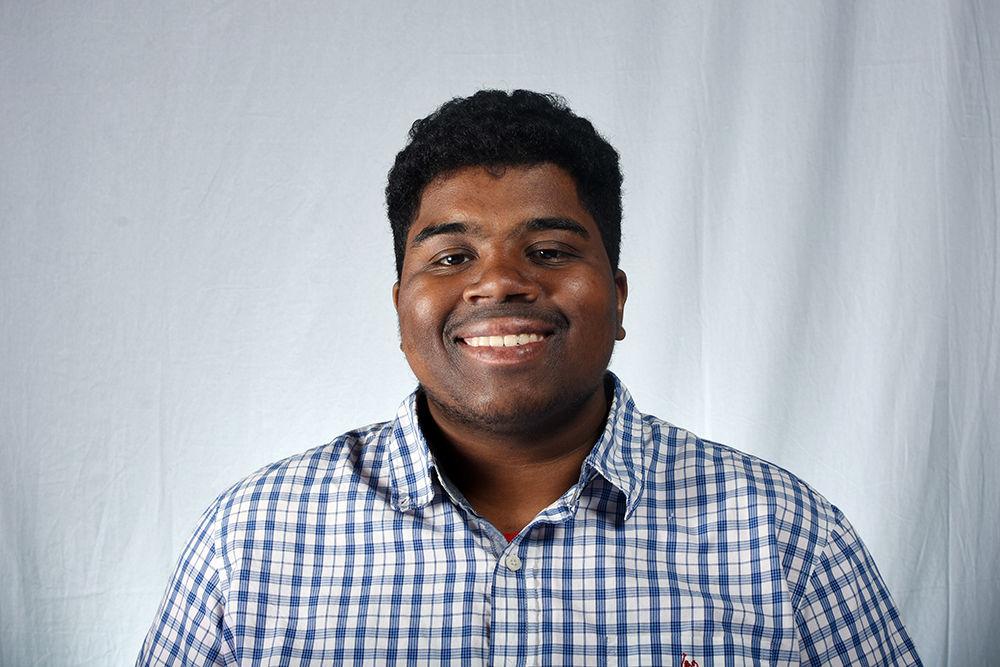
Shawn Fredericks
Racism, specifically anti-black racism, is as American as apple pie, as I like to say. It is the original sin of the United States, well, one of many. This sin is constantly perpetuated by white America’s consistent attitude of denial and apathy that furthers a divide between black and white America.
White people must understand that in order for racism to end in America, white America has to take responsibility for benefiting from and perpetuating racism in America. Recent headlines showcase the current the status of race relations, which for the past 400 years have quite frankly been terrible. White people have continually made it hard for black people to simply live their lives.
This is America, where you cannot Airbnb while black, barbecue while black, sleep while black, swim while black or go to Starbucks while black without the cops being called on you by some entitled white person. Any student of color from NC State can be exposed to this type of harassment, making it imperative that white students develop more awareness of these issues affecting people of color.
But these are only surface-level issues. There is still deep-seated institutional racism in America today. Within the politics of healthcare, for instance, there are many racial inequalities. Jamila Michener notes in her Vox article “The politics and policy of racism in American health care” that healthcare policy is hugely racialized. She cites how public opinion of the Affordable Care Act is heavily divided along racial lines. She also cites a study that found states’ decisions to expand Medicaid are “positively related to white opinion and do not respond to nonwhite support levels.”
Economically, there persists an income and economic mobility gap between white people and black people, to the shock of (hopefully) no one. One study has found that black men earn less in adulthood than white men from similar socioeconomic backgrounds. The study also found that blacks and Native Americans have the lowest rates of upward economic mobility.
For many communities of color, America is a police state where racial harassment and the use of violence and intimidation are supported by the establishment. Police brutality upon communities of color is not new, and white people are very aware of it. Alas, no matter how many viral videos explode on the internet, the white community remains consistently apathetic to the issue of police brutality towards people of color.
Acknowledging racism on a surface level is not even a half step to true change. Without addressing systemic issues, the cycle of inequality will continue, constantly perpetuating itself throughout time. Too many times has the opportunity to end racial inequality been passed up in favor of half measures. Radical change is needed in America’s institutions.
What is more alarming is that back in December the FBI arrested its first “black identity extremist.” His name is Christopher Daniels, and he was under surveillance for two years for social media posts criticizing law enforcement. He has since been released after the indictment was thrown out.
I find it troubling that criticism of the police may potentially make a black person a target for the feds. So now you cannot have free speech while black. The feds have a history of surveilling black people, lest people forget about the COINTELPRO projects conducted by the FBI to antagonize groups they deemed subversive, including the civil rights movement and the Black Panther Party. As a part of these operations, the FBI sometimes committed immoral actions, such as the killings of Fred Hampton and Mark Clark during a raid.
What perpetuates all of these inequalities is white fragility and white denial. White people have historically denied the far-reaching effects of racism, as Gallup poll numbers show. 85 percent of white people in 1962 said that black children had the same chance as white children of obtaining a good education. In 1963 more than six in 10 whites told Gallup pollsters that blacks were treated equally with whites in their communities, a number that grew to 75 percent the year before Martin Luther King Jr. was killed and before the Fair Housing Act was passed.
However, nowadays this denial is paired with victimhood and hypocrisy as white America sees racial progress with anxiety. Another study found that “a majority (55%) of white Americans believe that discrimination against whites exists in America today,” although, as it noted, “relatively few say that they have been personally discriminated against because they are white.”
I bring all of this up to illustrate to the white people reading this that: one, racism is alive and well; two, the white community bears responsibility for racial progress; and three, that people of color are not obligated to be the paragons of moral virtue. People of color should not be alone in being interested in racial equality. Communities of color should not be the only community laboring for racial justice.
A future where racial justice is obtainable will only be possible when white people become more proactive in pursuing racial equity and equality. I would encourage white people, and especially white students, to become involved in local racial justice groups and non-profits, not just to get an education, but to put forth serious effort toward solving racial inequalities.